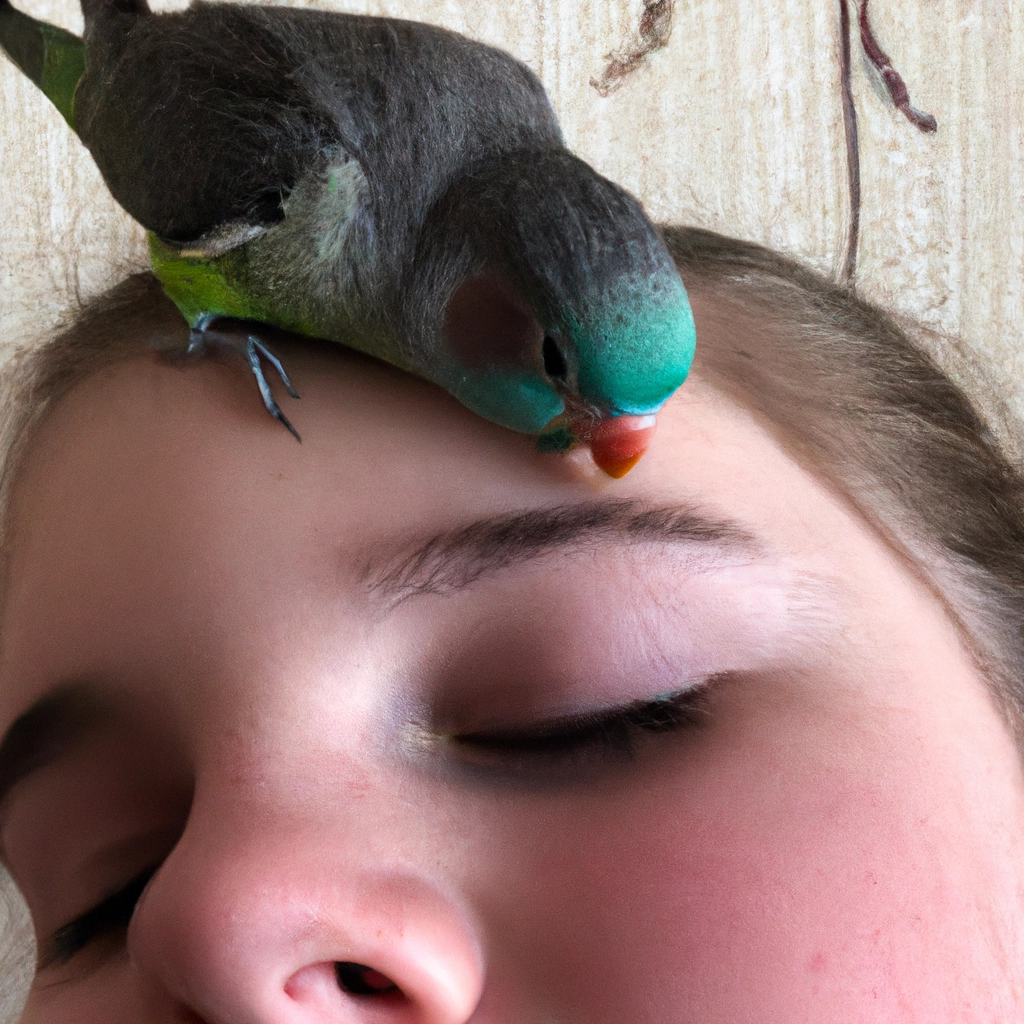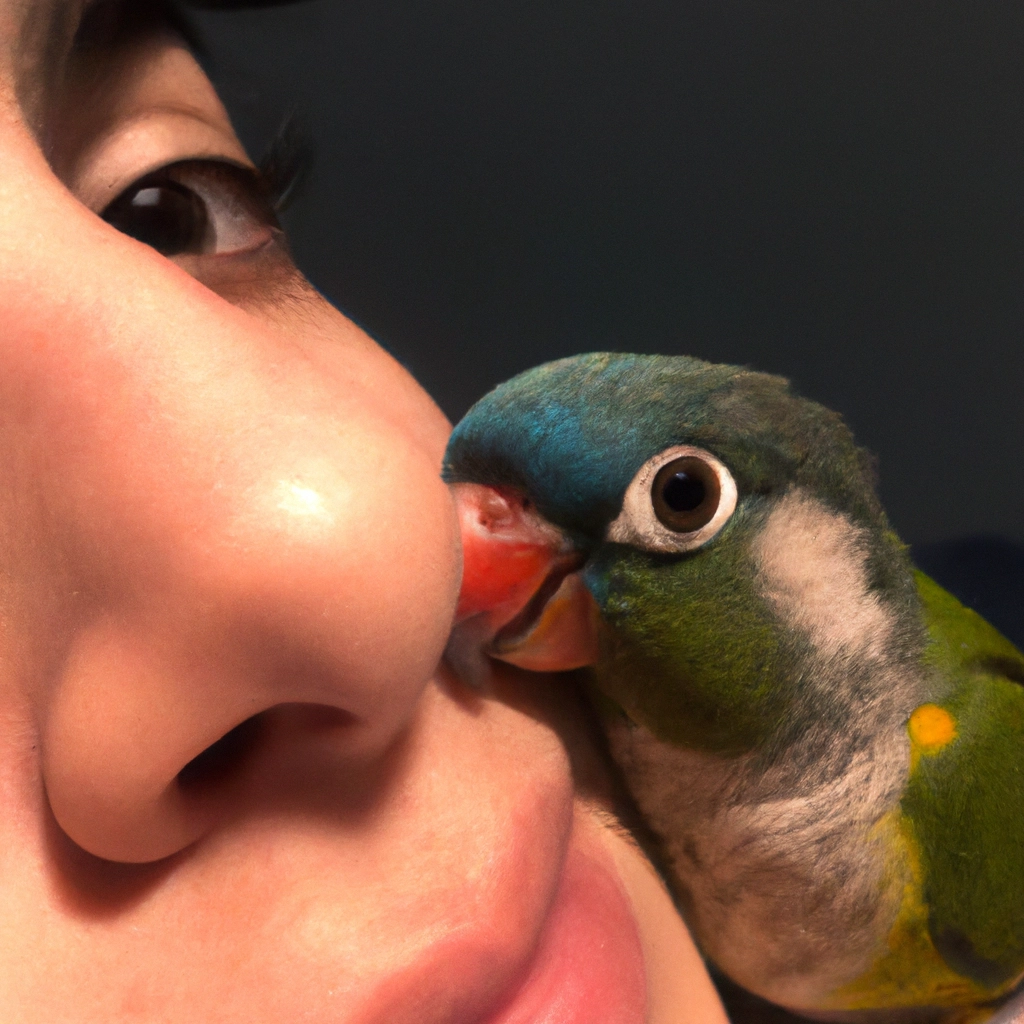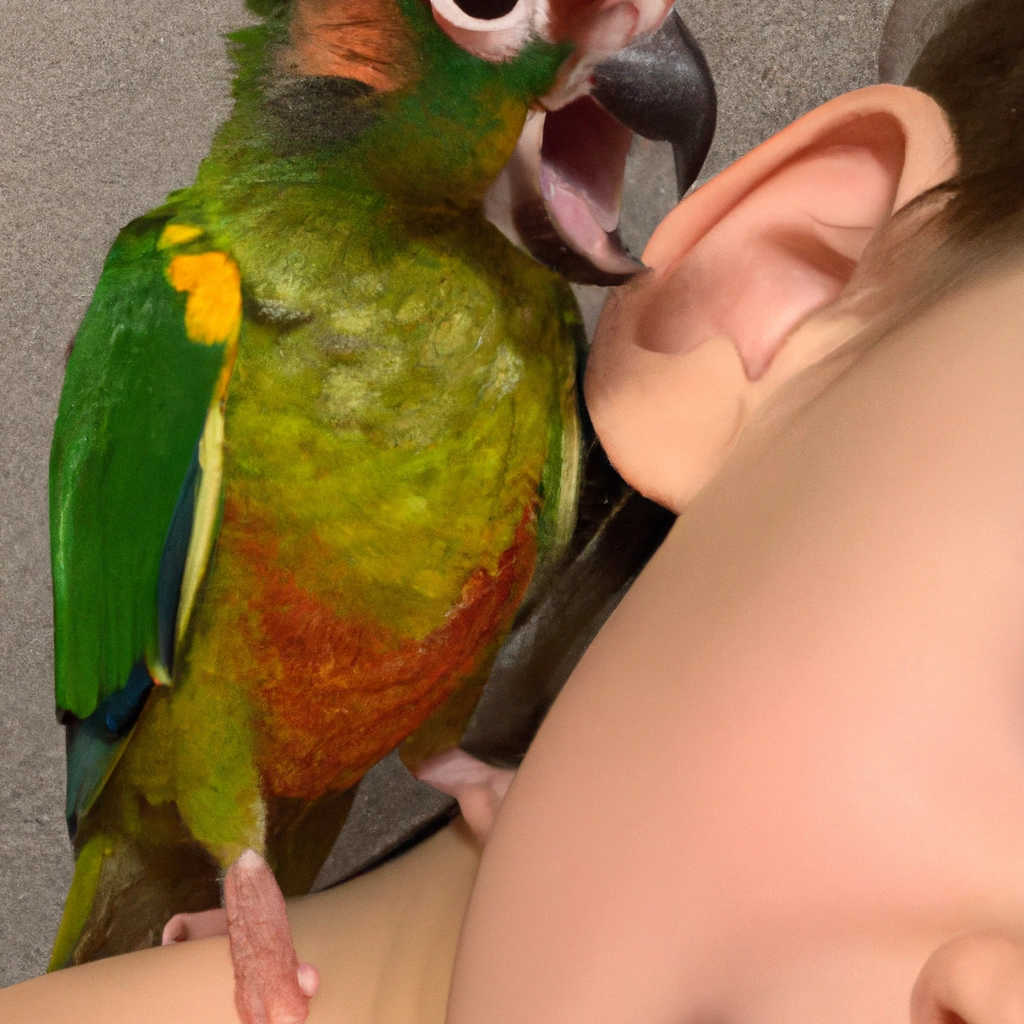The day I pecked my feathery friend on the beak for the first time was unforgettable. There I was, pondering if a smooch would make us best buddies or sworn enemies. This quirky curiosity isn’t unique to me—I’ve met countless pet enthusiasts who’ve pondered showing their winged companions some lip service. In this write-up, I’ll flit through my personal tales with my conure to shed some light on the smooch dilemma.
Since keeping birds as cherished companions isn’t new, it’s only natural we’d want to show them love as we do with our furry pets. But is planting a kiss on your conure as straightforward as scratching a puppy behind the ears? I’m here to chirp out from my experiences, and hopefully, guide fellow bird aficionados in their quest for affectionate bonding.
As much as we yearn to express our fondness, it’s crucial we take a bird’s-eye view on what’s best for our feathered pals. Are they flying high with the idea, or would they rather keep their beaks to themselves? Let’s navigate this together, sharing both heartwarming stories and words of caution.
Understanding Conure Behavior and Body Language
Having a bird and not tuning in to its body signals is like trying to dance without music—you’re bound to step on some toes! My journey to being a conure-whisperer of sorts began with keen observation, which paid off in understanding my bird’s comfort zones.
For instance, when my conure’s feathers fluffed and eyes narrowed to happy slits, I knew we were in the clear for closer contact. Conversely, when it ruffled its feathers or turned away, I recognized the “back off” signal. If you’re looking to be chummy with your conure, learning these cues is your first flight lesson.
Reading a conure’s mood is a bit like detective work, but with enough time and patience, you’ll be deciphering their chirps and squawks like a pro. Don’t worry if you’re not fluent in “conure” just yet—I’ve gathered a list of tell-tale signs that spell out their headspace.
Risks and Precautions
Landing a kiss on your conure isn’t just about the warm fuzzies; it’s also about playing it safe. Birds, like all creatures, are walking ecosystems, hosting bacteria that could spell trouble for both of you when swapped through a smooch.
After some chatting with avian vets who knew their stuff, it became clear that precautions were necessary. Did you know that birds can harbor zoonotic pathogens like Chlamydia psittaci, known for causing psittacosis in humans? It’s not quite the token of affection we’re aiming for.
Ensuring that both my conure and I were healthy became the baseline for our interactions. Washing hands before handling, checking in with the vet, and watching for signs of stress in my bird; these were all pieces of a puzzle that, once solved, allowed for a more confident approach to sharing a gentle peck.
My Personal Experience with Kissing My Conure
The inaugural buss between me and my conure was a leap of faith—would it plop like a bad joke or fly like a heartfelt sonnet? To my delight, after our bond strengthened through shared experiences and consistent interaction, my conure began to associate my face with friendliness, not fear.
Of course, I say this with the caveat that every bird is a unique individual with its own comfort level. Like any good relationship, it took mutual respect and patience to get to the point where a beak-to-cheek moment felt natural.
My conure might not understand the human concept of a kiss, but through the language of trust we’d built, the gesture became a shared symbol of our special connection. Whether it was a nuzzle against my cheek or a tender nibble, the joy was palpable each time.
Alternatives to Kissing
What if your conure is not on board with the whole kissing business? No problem! Birds appreciate affection in many forms, and you can definitely get creative. Enter gentle scritches—those little strokes and scratches on their head and neck that can send them into a blissful trance.
That’s not all; chatting it up with your conure can also tighten your bond. I’ve found that my conure perks up at the sound of my voice. I’ve swapped a peck with praise and found it to be just as effective, avoiding the need for physical contact entirely at times.
Remember, respecting your conure’s quirks and preferences is paramount. Your bird might be the cuddly type or the ‘admire-me-from-afar’ kind, and both are okay. You’ll find that paying attention to their personality and adapting your methods will foster a bond just as strong, if not stronger, than any kiss could.
Conclusion
To wrap this feathery fandango up, understanding conure communication is the wind beneath the wings of a loving relationship. While the affection of a kiss is endearing, it’s not without its set of risks and considerations.
I encourage you, fellow bird buffs, to share your winged whispers and seek avian expert guidance before you pucker up. And let’s not forget the myriad of other affectionate expressions available at your fingertips – literally! The true beauty lies in the flight of this journey, building bonds that warm the heart without a single lip lock.
P.S. Don’t forget to check out tips for a healthy conure, get some insight on the best conure diets, and find more birdie care advice at our dedicated bird care section. Happy bonding!
Frequently Asked Question
-
How can physical affection affect the bond with your conure?
Physical affection can have a positive impact on the bond with your conure. Spending time petting, cuddling, and gently handling your conure can help strengthen your relationship and build trust. Conures are social birds that enjoy physical interaction, and they often form strong bonds with their human companions through gentle touch and affectionate gestures. However, it’s important to be mindful of your conure’s body language and preferences, as some birds may not enjoy certain types of physical affection. Always approach your conure with respect and sensitivity to their individual needs and boundaries.
Incorporating physical affection into your daily interactions with your conure can create a deeper connection and a sense of security for your bird. Whether it’s gentle scratches, soft petting, or simply spending time close together, physical affection can help nurture a strong and loving bond between you and your conure. Remember to observe your conure’s reactions and adapt your approach accordingly to ensure that the physical affection you provide enhances the bond and mutual trust between you and your feathered companion.


